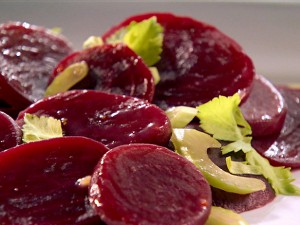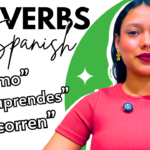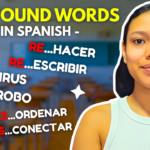
In a recent blog post, I talked about “how to wonder” about something in the PRESENT in Spanish. I mentioned that Spanish doesn’t have a verb for “to wonder.” I also said Spanish does have a verb called “preguntarse” or to ask one’s self. But “me pregunto” or “I ask myself” isn’t exactly the same as “I wonder.” I then went on to say that in the Spanish language, in order “to wonder” in the PRESENT you ASK YOURSELF questions using the FUTURE TENSE.
I then provided a few examples:
1. ¿Qué hora será?
(I wonder what time it is.)2. ¿Cómo se llamará ella?
(I wonder what’s her name.)3. ¿Quién vendrá a la fiesta?
(I wonder who is coming to the party.)4. ¿Qué comerán ellos?
(I wonder what they are eating.)5. ¿Quién ganará el partido?
(I wonder who is winning the game.)
How To Say I Wonder About Something In The PAST in Spanish
And I ended that blog post by telling you that in this blog post, I would share with you “how to wonder” about something in the PAST in Spanish.
Although Spanish only has one way to say “I wonder . . . ” about something in the PRESENT (ask yourself a question using the future tense), Spanish actually has two different ways to say “I wonder . . . . ” about something in the past:
1. The Conditional
2. The future perfect.
Let’s start with the “conditional.” One way to say “I wonder . . . .” about something in the PAST is
by ASKING YOURSELF A QUESTION using the CONDITIONAL.
Por ejemplo . . .
1. ¿Qué hora sería cuando se fue mi jefe?
(I wonder what time it was when my boss left)2. ¿Cuánto costaría la arma que compró ella?
(I wonder how much did the gun cost that she bought.)3. ¿Dónde estarían mis hijos anoche?
(I wonder where were my children last night.)4. ¿Qué aprenderíá Valentina hoy?
(I wonder what Valentina learned today.)
Antoher way to say “I wonder . . . .” about something in the PAST is by ASKING YOURSELF A QUESTION using the “futuro perfecto” or future perfect.
Por ejemplo . . .
1. ¿Quién habrá puesto remolachas en mi plato?
¿Quién habrá colocado remolachas en mi plato?
(I wonder who put beets on my plate.)
And of course you can also “wonder” by asking yourself the same question using the conditional:
¿Quién pondría remolachas en mi plato?
¿Quién colocaría remolachas en mi plato?
A propósito (by the way), be careful when using the verb “colocar” in place of “poner.” Although I am sure that this is NOT true in every part of the Spanish-speaking world, in Colombia, many people have told me that using “colocar” instead of “poner” is a sign that a person is not well educated or a “campesino” (someone from a poor rural area). I guess it could also be argued that whoever would say such a thing about someone else is “creído” (stuck-up or snobbish).
Back to saying “I wonder . . . ” in the past.
2. ¿Cuánto habrá costado la nevera que compró ella?
I wonder how much did the refrigerator cost that
she bought.3. ¿Dónde habrán estado mis hijos anoche?
I wonder where were my children last night.4. ¿Qué habrá aprendido Valentina ayer?
I wonder what Valentina learned yesterday.
So those are the two different ways that you can say “I wonder . . . ” about something in the PAST in Spanish. You can either ASK YOURSELF A QUESTION using the conditional. Or you can ASK YOURSELF A QUESTION using the “futuro perfecto” (future perfect).





